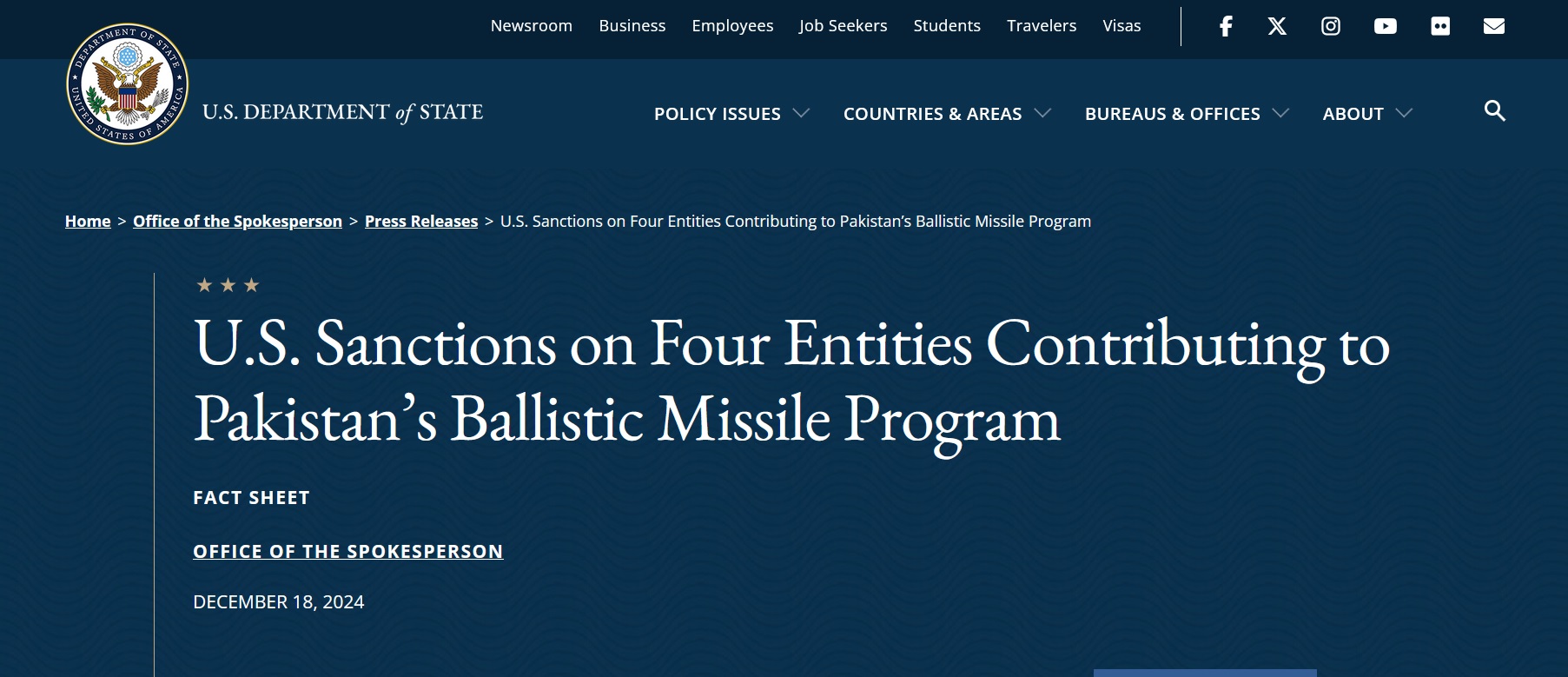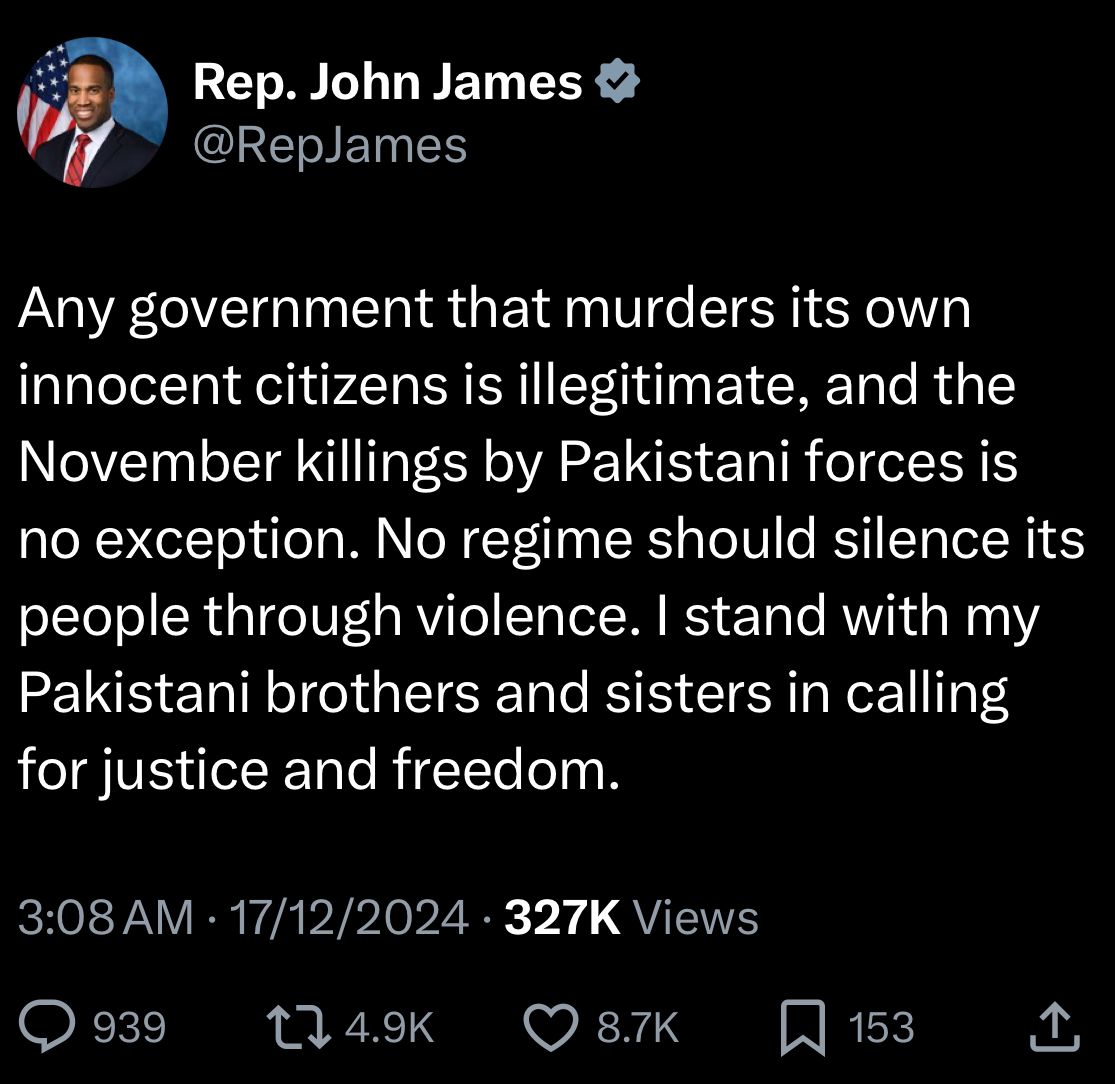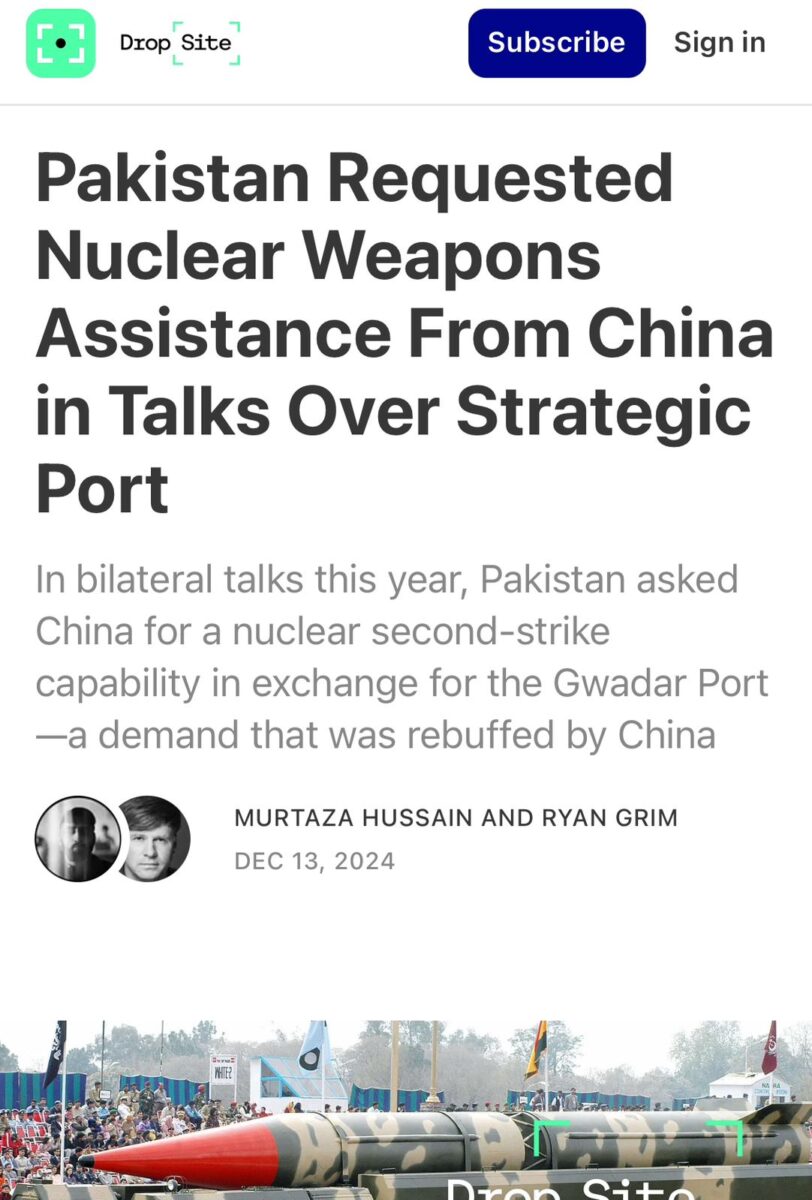Monitoring Desk: The US has again imposed sanctions on Pakistan for its ballistic missile program claiming that Pakistan’s program falls under the proliferation of Weapons of Mass Destruction (WMD) while the Foreign Office of Pakistan in a lukewarm response said that Pakistan considers the US decision to impose sanctions on NDC and three commercial entities as unfortunate and biased. In its statement, the Pakistan Foreign Office did not reject US sanctions.

According to the US States Department, in light of the continuing proliferation threat of Pakistan’s long-range missile development, the United States is designating four entities for sanctions pursuant to Executive Order (E.O.) 13382, which targets proliferators of weapons of mass destruction and their means of delivery, said US States Department.
- The National Development Complex (NDC), located in Islamabad, Pakistan, has worked to acquire items in furtherance of Pakistan’s long range ballistic missile program – including special vehicle chassis intended to be used as launch support equipment for ballistic missiles and missile testing equipment. The United States assesses NDC is responsible for Pakistan’s development of ballistic missiles, including the SHAHEEN-series ballistic missiles.
- Akhtar and Sons Private Limited, located in Karachi, Pakistan, has worked for NDC to supply a range of equipment to Pakistan’s long-range ballistic missile program.
- Affiliates International, located in Karachi, Pakistan, has facilitated procurements of missile-applicable items for NDC and others in support of Pakistan’s ballistic missile program.
- Rockside Enterprise, located in Karachi, Pakistan, has worked for NDC to supply a range of equipment to Pakistan’s long-range ballistic missile program.
Foreign Office Pakistan while responding to sanctions said:
Pakistan considers the US decision to impose sanctions on NDC and three commercial entities as unfortunate and biased. Pakistan’s strategic capabilities are meant to defend its sovereignty and preserve peace and stability in South Asia. The latest installment of sanctions defies the objective of peace and security by aiming to accentuate military asymmetries. Such policies have dangerous implications for the strategic stability of our region and beyond.
Pakistan’s strategic program is a sacred trust bestowed by 240 million people upon its leadership. The sanctity of this trust, held in the highest esteem across the entire political spectrum, cannot be compromised.
We also regret the imposition of sanctions on private commercial entities. Similar listings of commercial entities in the past were based on mere doubts and suspicion without any evidence whatsoever. While claiming strict adherence to non-proliferation norms, licensing requirements for advanced military technology to other countries have been waived off in the past.
Such double standards and discriminatory practices not only undermine the credibility of non-proliferation regimes but also endanger regional and international peace and security.


 The author Dr. Attia Anwar is a consultant family physician with a postgraduate degree from the Royal College of GP UK. She is a strong advocate of health and well-being and wants patient participation in decision-making regarding health.
The author Dr. Attia Anwar is a consultant family physician with a postgraduate degree from the Royal College of GP UK. She is a strong advocate of health and well-being and wants patient participation in decision-making regarding health.






